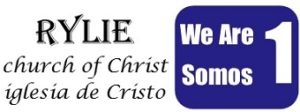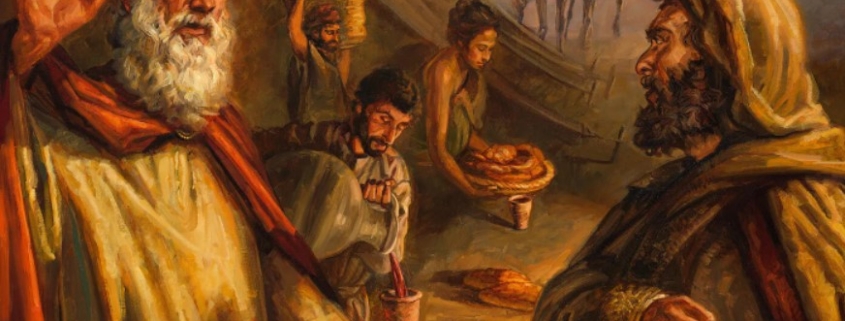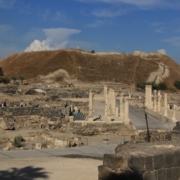Bulletin for 4-10-22
Birthdays and Anniversaries:
4-16 Maksim Camacho
Prayer requests:
Darlyne Stewart, Karl’s sister, her cancer seems to be under control for the moment.
Shirley Weeks, Steve’s mom, is not well.
Sharon Best, Steven’s mom, still recovering from surgery.
Sarah, Chris Girvin’s sister, on hospice care
Eleuterio Oviedo recovering from knee replacement surgery
Doris Coley, regular listener, also recovering from knee surgery.
Robert and Sue Waller, health issues.
David Shaffer, being treated for leukemia.
Darla Nitti, Wendi’s mom, stage 4 kidney disease, stroke. New living situation!
Leta, has a recurring cancer, prayer request from her granddaughter via our website.
Tammy Jones, Weeks’ neighbor, kidney failure/dialysis
Condolences and Sympathy:
Camille Crossen, friend of the Reames’, passed away this week. Please keep her family in your prayers.
Article:
God most high
“And Melchizedek king of Salem brought out bread and wine; now he was a priest of God Most High. He blessed him and said, ‘Blessed be Abram of God Most High, Possessor of heaven and earth; and blessed be God Most High, who has delivered your enemies into your hand’” (Genesis 14:18-20, NASB).
When Abram returned to the plains of the Jordon River after rescuing his nephew Lot and other citizens of the cities of the plains from the Mesopotamian armies who had captured them, he was met by the King of Sodom and by Melchizedek. This second man is identified as both the King of Salem and a priest of “God Most High”. The Hebrew for this title is “El Elyon.“
This title for God conveys various meanings including priority of position (“highest”), and therefore of order (“first”), and ultimately, supreme authority. Technically it may not demand a monotheistic view of God, but practically speaking it at least led to such faith. If God is the highest and most powerful of all beings, he is of course the only one to whom the title “God” may be logically attributed. “Most High” implies “only” just as does the description “Lord of Lords and King of Kings” (1 Timothy 6:15).
Abram accepted the blessing which Melchizedek bestowed from God Most High, but he also amended the priest’s identification of the one true God slightly, by adding the personal name of God, Yahweh, which is translated in our English Bibles by the word “LORD” spelled with all capital letters. Lest there be any doubt as to who exactly this supreme God is, the patriarch identified him by name (Exodus 3:13-14).
One is reminded of Paul’s sermon in Athens (Acts 17:22-31) in which he identified the “unknown god” to whom they had erected an altar as the creator and giver of all life. Their worship of such a deity without recognition of his identity, nature, or will, was unacceptable and unprofitable.
Many today argue that faith in any god, regardless of who it may be or how he or it may be perceived is sufficient to satisfy the requirements of salvation. Both Abram and Paul stand in opposition to such a view. God must be known (2 Thessalonians 1:8), he must be submitted to (Matthew 4:10), and his will must be obeyed (Matthew 7:21).
We worship whom we know (John 4:22). The God whom we worship and serve is the Creator (Genesis 1:1), the Father of Jesus Christ (Luke 1:30-32), the God of the Bible, and the only living and true God (1 Thessalonians 1:9). Our God is “eternal, immortal, invisible, the only God” (1 Timothy 1:17). He is “the blessed and only Sovereign, the King of kings and Lord of lords” (1 Timothy 6:15). God is love (1 John 4:8) and has given his Son so that sinful mankind might have the hope of salvation (John 3:16; Romans 5:8).
Abram’s meeting with Melchizedek reminds us of the importance of properly recognizing and identifying exactly who God is. Our faith is not simply an impulse to plea for help from “whoever might be out there” whether person or force. Rather, “He who comes to God must blieve that he is and that he is a rewarder of those who seek him” (Hebrews 11:6).
Image to this article is courtesy of Jan van ‘t Hoff of GospelImages.com.
Michael Brooks, link to original article







